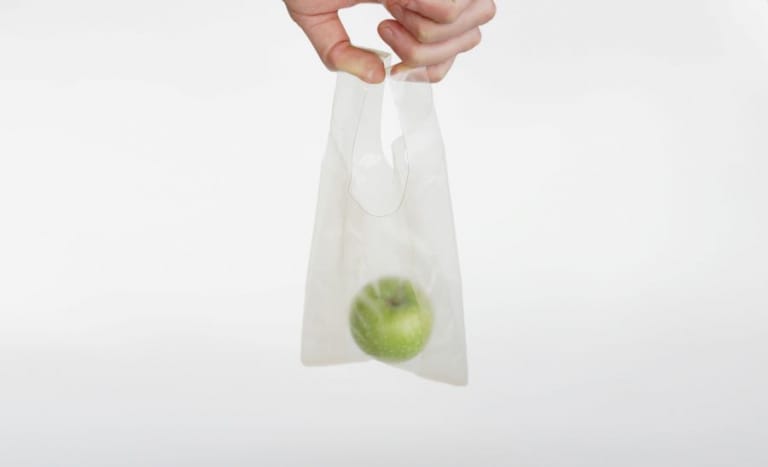MarinaTex looks and feels like clear plastic but is made from fish waste and agar, produced at temperatures below 100 degrees Celsius, and takes just over a month to biodegrade. With nearly half of the five million tonnes of plastic used in the UK each year coming from packaging, Lucy hopes MarinaTex can replace some of this, while also finding a stream for the half a million tonnes of fish waste produced in the country annually. After being named the UK winner of the Dyson Award earlier this year, Lucy will now receive £30,000 for taking the overall international prize.
Sussex graduate wins UK Dyson Award with fish bioplastic
Spiders’ silk gives strength to wood-based bioplastics
“Plastic is an amazing material, and as a result, we have become too reliant on it as designers and engineers,” said 23-year-old Lucy, who developed MarinaTex during her final year of Product Design at Sussex University. “It makes no sense to me that we’re using plastic, an incredibly durable material, for products that have a life-cycle of less than a day.
“I’m so delighted that MarinaTex has been recognised by the James Dyson Award. The invention is still in its infancy and I never thought it would make it to this stage, so it’s really encouraging to have the potential of the material acknowledged by such a prestigious award. I’m excited to now have the chance to undertake further research and development to explore all of the possible uses of MarinaTex, taking into account form, function and footprint.”

As MarinaTex uses byproducts from the fishing industry, it also helps to close the loop of an existing waste stream for a more circular product lifespan. According to Lucy, one Atlantic cod could generate as much organic waste needed to make 1,400 bags of MarinaTex. The other finalists for the international award included a new type of wheelchair tyre for beach and off-road use, as well as an AI-enabled device for monitoring asthma.
“The James Dyson Award received some thought-provoking ideas this year – and more female entrants than ever – making the judging very difficult,” said Sir James Dyson.
“Ultimately, we decided to pick the idea the world could least do without. MarinaTex elegantly solves two problems: the ubiquity of single-use plastic and fish waste.”





Red Bull makes hydrogen fuel cell play with AVL
Formula 1 is an anachronistic anomaly where its only cutting edge is in engine development. The rules prohibit any real innovation and there would be...